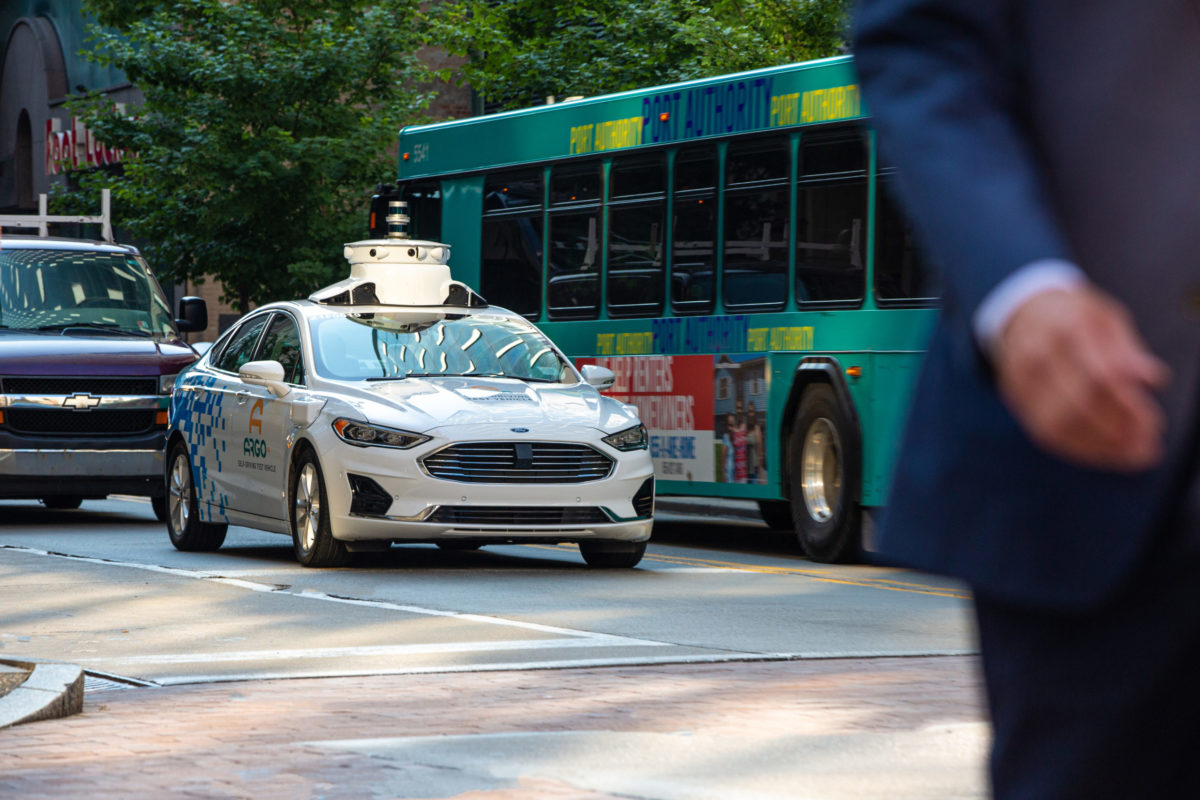Pittsburgh’s autonomous vehicle sector is booming, but taking a passive stance on progress could let competitors get ahead, a new report states.
Earlier this month, the Regional Industry Development Corporation of Southwestern Pennsylvania released a report with the Greater Pittsburgh Chamber of Commerce on the competitive advantages of Pittsburgh’s autonomous vehicle and mobility sector. In addition to gathering current data on the sector, the report aimed to lay out a strategic plan for how Pittsburgh can secure its status as a global destination for the industry ahead of competing markets. Study collaborators included local academic and business leaders like Carnegie Mellon University, the University of Pittsburgh, the Pittsburgh Robotics Network, Argo AI, Aurora, Motional and more.
Of 71 local companies or company divisions in the region’s autonomy sector, TEConomy Partners — who aided in the nine months of research behind the report — found the following:
- There were at least 6,300 direct jobs at Pittsburgh autonomy companies, and nearly 15,000 that are dependent on the local industry.
- In total, the sector has an economic output of $2.9 billion
- The sector has a labor income impact of $651 million and direct local, state and federal tax revenues of $161 million.
Still, these optimistic data points in the report were tempered with an awareness of growing competition in other markets. Pittsburgh falls behind the Detroit-Ann Arbor area in its concentration of autonomous vehicle industry leaders, with Atlanta, Dallas, Washington D.C. and Portland following after that. The report also ranks Pittsburgh 7th in the U.S. on business establishment volume, at 60 total companies. That number is behind the broader regions around San Francisco, Boston, New York and other established tech hubs.
“To claim global leadership, long term, a focused state-level autonomy policy is essential. That will enable us to compete – and win – in this space,” said Greater Pittsburgh Chamber of Commerce Matt Smith President in a prepared statement on the report. “The entire 10-county region has so much to gain if we move now to create the right environment to leverage an opportunity that’s cross-cutting – from self-driving vehicles and robotics to farming and advanced manufacturing. Pittsburgh can become the global hub for autonomous technologies with opportunities up and down the sector’s supply chain and future-focused jobs for workers of all levels from technicians and skilled trades to PhDs.”
To achieve that, the report laid out a six-part strategic plan. One of the main recommendations in that plan was to establish a better statewide program for autonomous vehicle technology, including more funding and updated regulations that will attract companies for broader testing and pilot programs. That, especially, could be an important step forward as even locally based companies have already launched such programs in the American Southwest.
Other suggestions played into the tech industry at large, including expanding the local talent pipeline, developing a supply chain for autonomous vehicles that would create manufacturing jobs and a more concerted effort to brand Pittsburgh as a top market for the industry.
Read the full report






